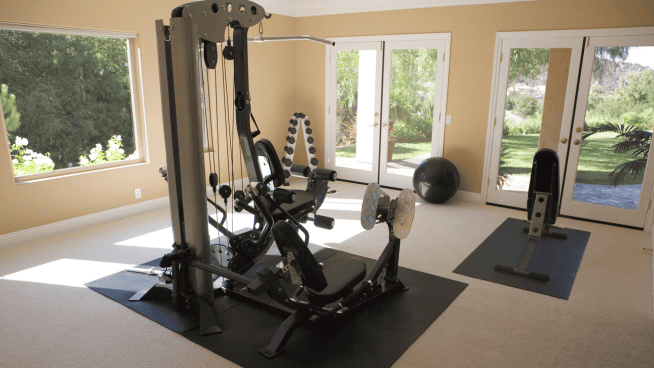Basic Nutrition Guidelines for Female Athletes
Nutrition for athletes has three purposes: 1) maximize initial performance; 2) sustain maximal performance; and 3) rapid recovery. For the female athlete, proper nutrition is also needed to maintain menstrual cycle and bone health.
The menstrual cycle is an additional energy user, so female athletes need to eat both for athletic performance and to maintain a normal menstrual cycle. Adequate nutrition also helps sustain normal levels of estrogen, a hormone needed not only to maintain normal menstrual cycle, but also to stimulate bone growth. Consequently, inadequate nutrition causes problems with athletic performance, the menstrual cycle—e.g., prolonged time between periods or complete cessation of periods—and bone health.
If a female athlete lacks adequate caloric intake, it will impact her athletic performance and her bone development, while also causing abnormal menstruation.
Calorie Guidelines
So, how should a female athlete eat to achieve all these goals? First, she needs to consume enough calories every day. Calories equal energy, not excess weight. This means eating more than 40 calories per kilogram of bodyweight per day, or 20 calories per pound. Thus, a female athlete who weighs 120 pounds needs more than 2,400 calories per day. This is the minimum amount of calories she needs to maintain health and good performance.
Because gaining weight is often a concern, the athlete needs first to ensure she is eating more than this amount daily and then watch her weight. If she finds herself gaining a few pounds, she should not worry! This just demonstrates that she was not eating enough previously. The extra calories will actually help to improve her performance, which is her ultimate goal.
To break it down further, all athletes need at least 6g of carbohydrates (sugars and starches) per kilogram per day, or 3 grams per pound, as well as 1.4 grams of protein per kilogram per day, or 0.7 grams per pound. So, a female athlete who weighs 120 pounds—needing more than 2,400 calories per day—should consume 360 grams of carbohydrates and 84 grams of protein per day. Since each gram of carbohydrate and protein delivers four calories, these amounts will actually equal not quite 1,800 calories. The rest can be filled with healthy fats, carbohydrates or protein.
A good example is a nut butter (peanut, soy, sunflower, etc.) and jelly sandwich on whole grain bread. This is an excellent athletic meal because of the carbohydrates—fast-acting sugars in the jelly and long-lasting starches in the bread—and the protein in the nut butter. In addition, the fats in the nut butter are “good” fats, ones the body actually needs. Meats are excellent sources of protein, and beans are a great source of both carbohydrate and protein. On the other hand, a piece of cake is not a good choice, because it has calories, carbohydrates and bad fats but virtually no protein.
Two final points: 1) vegetarians and vegans should consult a sports nutritionist to ensure an adequate diet; and 2) post-exercise meals should contain about 6g of carbohydrates/pound and 0.1g of protein/pound.
Many different combinations can be used, and each athlete should experiment with various foods to find the ones that work best. Eat well, perform well!
Summary
- Eat more than 20 calories per pound per day
- Eat more than 3g of carbohydrates per pound per day
- Eat more than 0.7g of protein per pound per day
- Eat some good fats—between 20 and 30 percent of total calories
- Eat carbohydrates and protein before and after exercising
- Eat plenty of fruits and vegetables (not juices), but do not include their calories in your overall intake. They provide a wealth of micronutrients athletes need but are too low in calories to make a difference
Photo: facebook.com
Dr. Robert Truax is a board-certified doctor in sports medicine, family medicine and osteopathic manipulative treatment at University Hospitals in Cleveland and an assistant professor at Case Western Reserve University’s School of Medicine. Visit uhhospitals.org/SportsMedVideos to watch sports injury videos.
RECOMMENDED FOR YOU
Basic Nutrition Guidelines for Female Athletes
Nutrition for athletes has three purposes: 1) maximize initial performance; 2) sustain maximal performance; and 3) rapid recovery. For the female athlete, proper nutrition is also needed to maintain menstrual cycle and bone health.
The menstrual cycle is an additional energy user, so female athletes need to eat both for athletic performance and to maintain a normal menstrual cycle. Adequate nutrition also helps sustain normal levels of estrogen, a hormone needed not only to maintain normal menstrual cycle, but also to stimulate bone growth. Consequently, inadequate nutrition causes problems with athletic performance, the menstrual cycle—e.g., prolonged time between periods or complete cessation of periods—and bone health.
If a female athlete lacks adequate caloric intake, it will impact her athletic performance and her bone development, while also causing abnormal menstruation.
Calorie Guidelines
So, how should a female athlete eat to achieve all these goals? First, she needs to consume enough calories every day. Calories equal energy, not excess weight. This means eating more than 40 calories per kilogram of bodyweight per day, or 20 calories per pound. Thus, a female athlete who weighs 120 pounds needs more than 2,400 calories per day. This is the minimum amount of calories she needs to maintain health and good performance.
Because gaining weight is often a concern, the athlete needs first to ensure she is eating more than this amount daily and then watch her weight. If she finds herself gaining a few pounds, she should not worry! This just demonstrates that she was not eating enough previously. The extra calories will actually help to improve her performance, which is her ultimate goal.
To break it down further, all athletes need at least 6g of carbohydrates (sugars and starches) per kilogram per day, or 3 grams per pound, as well as 1.4 grams of protein per kilogram per day, or 0.7 grams per pound. So, a female athlete who weighs 120 pounds—needing more than 2,400 calories per day—should consume 360 grams of carbohydrates and 84 grams of protein per day. Since each gram of carbohydrate and protein delivers four calories, these amounts will actually equal not quite 1,800 calories. The rest can be filled with healthy fats, carbohydrates or protein.
A good example is a nut butter (peanut, soy, sunflower, etc.) and jelly sandwich on whole grain bread. This is an excellent athletic meal because of the carbohydrates—fast-acting sugars in the jelly and long-lasting starches in the bread—and the protein in the nut butter. In addition, the fats in the nut butter are “good” fats, ones the body actually needs. Meats are excellent sources of protein, and beans are a great source of both carbohydrate and protein. On the other hand, a piece of cake is not a good choice, because it has calories, carbohydrates and bad fats but virtually no protein.
Two final points: 1) vegetarians and vegans should consult a sports nutritionist to ensure an adequate diet; and 2) post-exercise meals should contain about 6g of carbohydrates/pound and 0.1g of protein/pound.
Many different combinations can be used, and each athlete should experiment with various foods to find the ones that work best. Eat well, perform well!
Summary
- Eat more than 20 calories per pound per day
- Eat more than 3g of carbohydrates per pound per day
- Eat more than 0.7g of protein per pound per day
- Eat some good fats—between 20 and 30 percent of total calories
- Eat carbohydrates and protein before and after exercising
- Eat plenty of fruits and vegetables (not juices), but do not include their calories in your overall intake. They provide a wealth of micronutrients athletes need but are too low in calories to make a difference
Photo: facebook.com
Dr. Robert Truax is a board-certified doctor in sports medicine, family medicine and osteopathic manipulative treatment at University Hospitals in Cleveland and an assistant professor at Case Western Reserve University’s School of Medicine. Visit uhhospitals.org/SportsMedVideos to watch sports injury videos.











